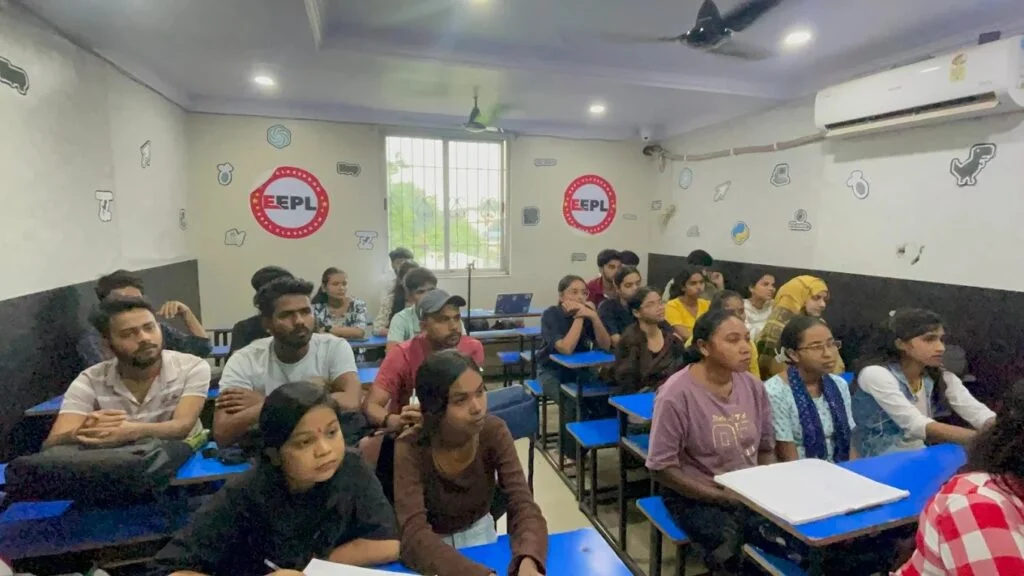Understanding Different Question Types
Assessments are integral to evaluating student learning and comprehension, and the types of questions employed play a crucial role in this process. Among the various question formats, long-form questions are often utilized to elicit detailed responses. These questions encourage students to articulate their understanding, synthesize information, and demonstrate critical thinking. They are particularly useful for assessing higher-order thinking skills, as they require learners to analyze, evaluate, and create rather than simply recall facts.
Another prevalent format is the multiple-choice question (MCQ). MCQs consist of a stem and several options where students must select the correct answer. They are effective for assessing basic knowledge and understanding, as they can cover a wide breadth of material in a concise manner. However, while they offer ease of assessment for both educators and students, it is essential to craft these questions thoughtfully to avoid ambiguity and ensure they truly capture the intended knowledge points.
Assertion-reason pairs provide a unique approach by linking a statement with a justification. This format challenges students to evaluate the validity of a claim and the accompanying reasoning. Such questions can be particularly beneficial in sciences and social studies, where understanding the rationale behind concepts is critical. They not only assess knowledge but also encourage students to think critically about the relationship between concepts.
Lastly, higher-order thinking skills (HOTS) questions transcend basic memorization, prompting students to apply their knowledge in novel situations. These questions stimulate creativity and problem-solving skills, crucial attributes in today’s complex world. By understanding and effectively utilizing these various question types, educators can create a more nuanced and comprehensive assessment framework aimed at fostering deeper learning and understanding among students.

Creating Long-Form Questions
When crafting long-form questions, it is essential to design prompts that not only stimulate critical thinking but also encourage students to articulate comprehensive responses. Long-form questions typically require students to engage deeply with the material, fostering an environment conducive to analysis, synthesis, and evaluation. To begin, it is crucial to ensure that the questions are clear and focused. This can be achieved by using precise language and avoiding unnecessary jargon, which may confuse students and detract from the main objective.
One effective strategy for creating long-form questions is to use open-ended prompts that allow for a range of responses. For instance, rather than asking, “What are the causes of climate change?” you could frame the question as, “Discuss the multifaceted causes of climate change and their potential impact on future generations.” This approach not only encourages students to think critically about different perspectives but also compels them to develop structured arguments that are well-supported by evidence.
Examples of effective long-form questions can vary by subject matter. In history, a question might ask, “Analyze the impact of the Industrial Revolution on contemporary society.” In literature, one could pose, “Critique the themes presented in the novel and discuss how they reflect the societal issues of the time.” Such questions not only tap into students’ analytical skills but also connect the material to broader concepts.
Furthermore, while assessing student responses, it is important to establish clear grading criteria that align with the desired learning outcomes. Developing a rubric that outlines specific expectations can facilitate objective evaluation and provide students with guidance on how to improve their responses. By employing these strategies, educators can master the art of creating long-form questions that effectively promote deeper understanding and critical engagement with course content.
Designing Multiple-Choice Questions (MCQs)
Multiple-choice questions (MCQs) are a popular assessment tool in educational settings, providing a straightforward way to evaluate a student’s knowledge and understanding of a subject. The construction of high-quality MCQs is essential for ensuring that they effectively measure what they are intended to assess. To achieve this, several key principles should be adhered to while crafting these questions.
First and foremost, clarity is paramount. Each question should be expressed in simple, unambiguous language to prevent misinterpretation. Avoid using jargon or overly complex vocabulary, as this may confuse respondents and lead to inaccurate assessments of their knowledge. Furthermore, it is crucial to ensure that all answer options are related to the question and relevant to the content being assessed. This relevance helps in distinguishing between students who have mastered the subject matter and those who have not.
Another common pitfall in MCQ design is the inclusion of misleading language. Avoid using qualifiers such as “always” or “never” in both questions and answer choices, as these can create confusion. Instead, employ neutral language that accurately reflects the content of the question. It is also advisable to have a balanced distribution of question difficulty levels. Mixing easier questions with more challenging ones can enhance the test’s overall effectiveness, allowing for a comprehensive evaluation of student understanding.
The construction of plausible distractors, or incorrect answer choices, is also critical. Good distractors should reflect common misconceptions or errors in reasoning that students might hold. This approach not only tests knowledge effectively but also helps in identifying areas where students may need further instruction. By adhering to these guidelines, educators can create MCQs that provide reliable insights into student comprehension and promote a deeper understanding of the subject matter.
Implementing Assertion-Reason and Higher-Order Thinking Skills Questions
The assertion-reason question format serves as a compelling tool in evaluating students’ capabilities to logically and critically connect diverse concepts. This question type comprises two statements: the assertion and the reason. For instance, consider an assertion such as, “Photosynthesis is essential for plant survival,” paired with a reason like, “It enables plants to convert light energy into chemical energy.” Students must determine if both the assertion and reason are true, and whether the reason correctly explains the assertion. This format not only gauges students’ understanding of factual content but also their ability to synthesize information and establish relationships between concepts.
In addition to assertion-reason questions, incorporating higher-order thinking skills (HOTS) questions is crucial for fostering deeper comprehension and analytical abilities among students. Unlike lower-order question types that focus on recall and basic understanding, HOTS questions challenge learners to apply, analyze, evaluate, and create based on their knowledge. An example of a higher-order thinking question might be, “How would the ecosystem be affected if photosynthesis ceased to occur?” Such questions prompt students to engage with the material on a deeper level, encouraging them to make connections and consider implications beyond surface-level facts.
When designing assertion-reason and HOTS questions, educators should ensure clarity and relevance. By utilizing a variety of formats—including multiple-choice, open-ended, and case studies—teachers can effectively assess student understanding. Moreover, accompanying rubrics tailored to these question types assist in providing structured feedback, enabling students to recognize areas for improvement. As such, the thoughtful implementation of these question formats not only enhances assessment strategies but also nurtures critical thinking skills, essential for student success in academic pursuits and real-world scenarios.
For More Information and Updates, Connect With Us
- Name: Survi
- Phone Number: +91-7488713635
- Email ID: survi@eepl.mr
- Our Platforms:
- Digilearn Cloud
- EEPL Test
- Live Emancipation
- Follow Us on Social Media:
- Instagram – EEPL Classroom
- Facebook – EEPL Classroom
- https://eepl.me/classes/index.php/blog/
Stay connected and keep learning with EEPL Classroom!











